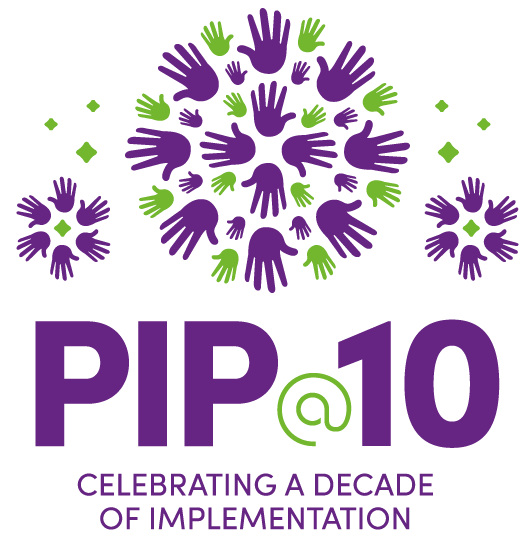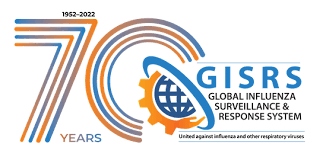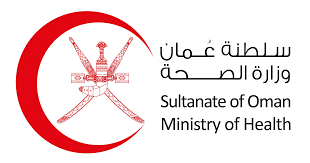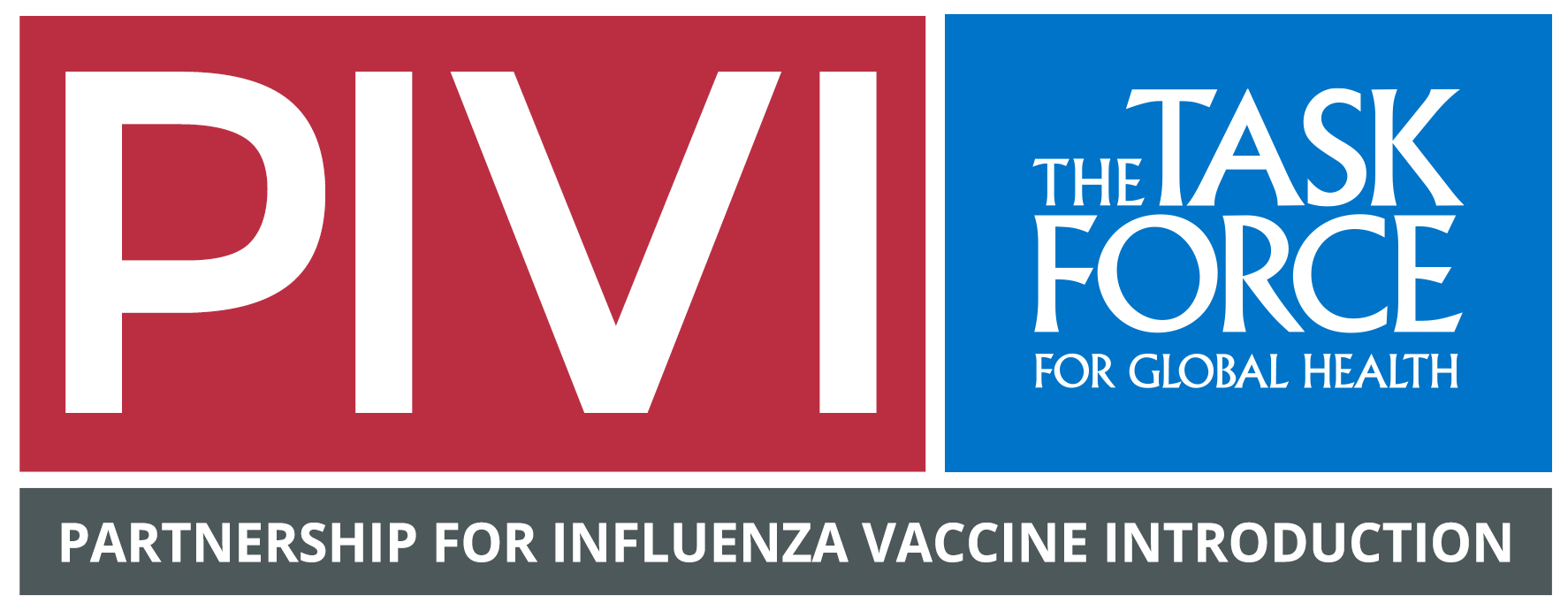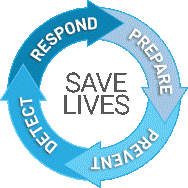Scientific Programme
Provisional Agenda
08:00 – 08:30
Registration
Opening plenary session
08:30 – 09:30
Moderator: Dr Richard Brennan, Regional Emergency Director, WHO Health Emergencies Programme, WHO Regional Office for the Eastern Mediterranean, Egypt
Introduction:
EMARIS Conference-an introductory video – Video screening
Welcome Remarks:
- His Excellency Dr Hilal Bin Ali Al Sabti, Minister of Health, Sultanate of Oman
- Dr Ahmed Al-Mandhari, Regional Director, WHO Regional Office for the Eastern Mediterranean, Egypt
- Dr Mike Ryan, Executive Director, WHO Health Emergencies Programme, WHO Headquarters, Switzerland
- Dr David E. Wentworth, Director, WHO Collaborating Center for Surveillance, Epidemiology and Control of Influenza/Chief, Virology Surveillance and Diagnosis, Influenza Division, CDC, United State of America
- Ms Ann Moen, Representative of the EMARIS Conference Organizing Committee, Public Health Advisor (former Ass. Director of Pandemic Preparedness, Influenza Division, CDC, United State of America)
- Infectious Hazard Prevention, Preparedness and Response– Video screening
09:30 – 10:00
Networking break / Group photo
Press Conference
(parallel event to EMARIS Conference Session 1)
10:00 – 11:00
- His Excellency Dr Hilal Bin Ali Al Sabti, Minister of Health, Sultanate of Oman
- Dr Ahmed Al-Mandhari, Regional Director, WHO Regional Office for the Eastern Mediterranean, Egypt
- Dr Richard Brennan, Regional Emergency Director, WHO Health Emergencies Programme, WHO, Regional Office for the Eastern Mediterranean, Egypt
- Dr David E. Wentworth, Director, WHO Collaborating Center for Surveillance, Epidemiology and Control of Influenza/Chief, Virology Surveillance and Diagnosis, Influenza Division, CDC, United States of America
Session 1: Reinforcing preparedness, detection, and response to respiratory diseases; from country to region to world (Lesson learn from Covid 19 pandemic)
Moderator: Dr Abdinasir Abubakar, Manager Infectious Hazard Prevention and Preparedness, WHO Regional Office for the Eastern Mediterranean, Egypt, Acting WHO Representative Lebanon
Presentations
10:00 – 10:10
- The Global COVID-19 Pandemic: How to end the pandemic — and prepare for the next pandemic/global vision
Dr Maria Van Kerkhove, Technical lead for the COVID – 19 response/Head Emerging Diseases and Zoonoses Unit, WHO Headquarters, Switzerland
10:10 – 10:20
- Lessons learned during the COVID-19 and future CDC Global Influenza Branch initiatives
Dr Eduardo Azziz – Baumgartner, Acting Branch Chief – Global Influenza Branch, Influenza Division, CDC, United States of America
10:20 – 10:30
- Respiratory Infections in the EMR post COVID-19- Challenges and opportunities for better control and prevention
Dr Rana Hajjeh, Director Programme Management, WHO Regional Office for the Eastern Mediterranean, Egypt
10:30 – 10:40
- Influenza during the COVID-19 pandemic-a global perspective of surveillance, preparedness and response to future influenza pandemic
Dr Wenqing Zhang, Unit Head, Global Influenza Programme, WHO Headquarters, Switzerland
10:40 – 10:50
- Integrated surveillance of influenza and other respiratory viruses with epidemic and pandemic potential: progress and challenges in the Kingdom of Saudi Arabia
Dr Haleema Alserehi, General Directorate of Infectious Diseases, Ministry of Health, Saudi Arabia
11:00 – 11:45
Panel discussion
Moderator: Dr Abdinasir Abubakar, Manager Infectious Hazard Prevention and Preparedness, WHO Regional Office for the Eastern Mediterranean, Egypt, Acting WHO Representative Lebanon
Panelists:
Dr Wenqing Zhang, Unit Head, Global Influenza Programme, WHO Headquarters, Switzerland
Dr Hanan Al Kindi, Director Central Public Health Laboratories, Sultanate of Oman
Dr David E. Wentworth, Director, WHO Collaborating Center for Surveillance, Epidemiology and Control of Influenza/Chief, Virology Surveillance and Diagnosis, Influenza Division, CDC, United States of America
Dr Amjad Ghanem Zaed Ghanem, Chief of Public Health Laboratories, Ministry of Health, Bahrain
70th Anniversary of GISRS, Decade of Collaboration Success and challenges – Video
GISRS serves as a critical resource for countries handling non-influenza emergencies, including the COVID-19 pandemic. How GISRIS helped Eastern Mediterranean Region and the world respond to pandemic
11:45 – 13:00
Oral abstract presentations
Moderator: Dr Joshua A. Mott, WHO Technical Advisor, Department of Epidemic and Pandemic Preparedness and Prevention, WHO Headquarters, Switzerland
Thematic area: Epidemiological surveillance Influenza, MERS and ORV, Integrated surveillance, Genomic surveillance, Lessons learnt from COVID-19
- Sudan: Mr Omer Ali
Epidemiology of covid-19 among children and adolescents in Sudan 2020-2022
- Somalia: Ms Sahra Isse Mohamed
Characterization of influenza viruses circulating in Somalia; September 2021 to September 2022
- Afghanistan: Dr Mohammad Akbar Paiman
Strengthening information sharing & management for outbreak response in the WHO Eastern Mediterranean Region
- Yemen: Dr Ahmed Thabit
An assessment of the current epidemiological and laboratory capacities for influenza-like illnesses and severe acute respiratory infection surveillance, Yemen 2022
- Global: Dr Isabel Bergeri
Pandemic special investigations and studies: key lessons and future directions
Followed by Q&A
5 oral Presentations Panel of Judges
Dr Ahmed Mandil, Coordinator, Research & Innovation, WHO Regional Office for the Eastern Mediterranean, Egypt
Dr Abdirahman Mohamed Abdullahi, Ministry of Health and Human Services, Somalia
Dr Hind Bouguerra, Assistant Professor of Epidemiology and Public Health, Tunisia
Dr Mohammed Badi, Public Health Specialist, Ministry of Health, United Arab of Emirate
Dr Noore Alam, Technical Officer, WHO Regional Office for the Eastern Mediterranean, Egypt
Dr Kinda Zureick, Epidemiologist, Global Influenza Branch, Influenza Division, CDC, United States of America
Dr Mohammad Nemer Abed Al – Hawarat, Director of the Communicable Diseases Directorate, Ministry of Health, Jordan
13:00 – 14:00
Lunch Break
Session 2: Influenza, non influenza respiratory viruses characteristics and preparedness dynamics
Moderator: Dr Salah Al-Awaidy, Sr. Consultant Medical Epidemiologist, Communicable Diseases Adviser to Health Affairs, Ministry of Health, Sultanate of Oman
Presentations
14:00 – 14:10
- WHO support to Member States during the COVID-19 pandemic – Outcome of an independent evaluation
Dr Richard Brennan, Regional Emergency Director, WHO Health Emergencies Programme, WHO Regional Office for the Eastern Mediterranean, Egypt
14:10 – 14:20
- Surveillance and characterization of human influenza viruses is central to pandemic preparedness
Dr David E. Wentworth, Director, WHO Collaborating Center for Surveillance, Epidemiology and Control of Influenza/Chief, Virology Surveillance and Diagnosis, Influenza Division, CDC, United States of America
14:20 – 14:30
- Role of Central Public Health Laboratory in promoting integrated respiratory disease surveillance
Dr Ahmed Al Barraq, Director, National Influenza Center and Central Public Health Laboratory, Saudi Arabia
14:30 – 14:40
- Global and regional threats for seasonal, avian, and other novel influenza viruses: What needs to be done!
Dr Nicola Lewis, Director, WHO Collaborating Centre for Reference and Research on Influenza, United Kingdom
14:40 – 14:50
- Preparing for future pandemics: CDC strategies and priorities for coronavirus and other respiratory viruses
Dr Aron Hall, Deputy Division Director, Coronaviruses and Other Respiratory Viruses Division, CDC, United States of America
14:50 – 15:00
- Investing and sustaining genome surveillance is critical for stronger pandemic and epidemic preparedness and response
Dr Krista Queen, Faculty, GISAID Academy, United States of America
15:00 – 15:45
Panel discussion
Moderator: Dr Eduardo Azziz-Baumgartner, Acting Branch Chief- Global Influenza Branch, Influenza Division, CDC, United States of America
Panelists:
Dr Amal Barakat, Technical Officer, WHO Regional Office for the Eastern Mediterranean, Egypt
Dr Hicham Oumzil, Chief Department of Virology, National Institute of Hygiene, Ministry of Health, Morocco
Dr Ahmed Al Barraq, Director, National Influenza Center and Central Public Health Laboratory, Saudi Arabia
Dr David E. Wentworth, Director, WHO Collaborating Center for Surveillance, Epidemiology and Control of Influenza/Chief, Virology Surveillance and Diagnosis, Influenza Division, CDC, United States of America
The Virological Surveillance of Influenza and other emerging respiratory pathogens from the Country to the Region, to the World: lessons learned from COVID and what we can do more in EMR
15:45 – 16:00
Networking break
Oral Abstract Presentations
16:00 – 17:30
Thematic areas: Virological surveillance, Influenza, MERS and other emerging respiratory infections, Integrated surveillance, Lessons learnt from COVID-19
- Iran: Dr Jila Yavarian
Genomic surveillance of sars-cov2 strains circulating in Iran during six waves of pandemic
- Pakistan: Mr Abdul Ahad
Confronting covid-19 pandemic – Pakistan’s experience with laboratory detection
- United Arab Emirates: Dr Francis Amirtharaj
Influenza surveillance in the United Arab Emirates: 2019 to 2022
- Lebanon: Mrs Zeina Farah
Estimation of the influenza-associated hospitalization rates using sentinel surveillance data, Lebanon, 2015-2020
- Oman: Dr Fatma Alyaquobi
Estimating the direct medical cost of influenza hospitalization in Oman
Followed by Q&A
5 oral presentations Panel of Judges
Dr Ahmed Mandil, Coordinator, Research & Innovation, WHO Regional Office for the Eastern Mediterranean, Egypt
Dr Abdirahman Mohamed Abdullahi, Ministry of Health and Human Services, Somalia
Dr Hind Bouguerra, Assistant Professor of Epidemiology and Public Health, Tunisia
Dr Mohammed Badi, Public Health Specialist, Ministry of Health, United Arab of Emirate
Dr Noore Alam, Technical Officer, WHO Regional Office for the Eastern Mediterranean, Egypt
Dr Kinda Zureick, Epidemiologist, Global Influenza Branch, Influenza Division, CDC, United States of America
Dr Mohammad Nemer Abed Al – Hawarat, Director of the Communicable Diseases Directorate, Ministry of Health, Jordan
19:00 – 21:00
Evening reception
Moderator: Dr Abdinasir Abubakar, Manager Infectious Hazard Prevention and Preparedness, WHO Regional Office for the Eastern Mediterranean, Egypt, Acting WHO Representative Lebanon
Welcome remarks: Dr Jean Jabbour, WHO Representative, Sultanate of Oman
Followed by Dinner
Session 3: Fragmented health systems in COVID-19: rectifying the misalignment between global health security and universal health coverage
Moderator: Dr Abdul Ghaffar, Formerly Executive Director Alliance for Health Policy and Systems Research, WHO Headquarters, Switzerland
Presentations:
09:00 – 09:15
- Global Health Emergency Preparedness and Response (HEPR) architecture: WHO’s new vision and priorities for epidemic and pandemic control
Dr Richard Brennan, Regional Emergency Director, WHO Health Emergencies Programme, WHO Regional Office for the Eastern Mediterranean, Egypt
09:15 – 09:30
- Surveillance as a Core Essential Public Health Function: Rebuilding Resilient Health Systems in EMR to advance the Dual Goals of Universal Health Coverage and Health Security (Virtual)
Dr Awad Mataria, Director Universal Health Coverage/Health Systems, WHO Regional Office for the Eastern Mediterranean, Egypt
09:30 – 09:45
- Strengthening health systems in fragile settings to advance better pandemic preparedness-case of Somalia
Dr Mamunur Malik, WHO Representative, Somalia
09:45 – 10:00
- Mass gatherings and surveillance for emerging infectious diseases
Prof. Ziad Memish, Director of Research and Innovation Center, King Saud Medical City, Ministry of Health, Saudi Arabia
10:00 – 10:15
- Sustaining investments in health security made during the COVID-19 pandemic
Ms Ann Moen, Ex Ass. Director of Pandemic Preparedness, Influenza Division, CDC, United States of America
10:15 – 11:00
Panel discussion
Moderator: Dr Abdul Ghaffar, Formerly Executive Director Alliance for Health Policy and Systems Research, WHO Headquarters, Switzerland
How do we leverage the existing health systems and health security capacities to be better prepared for future pandemics: Lesson learn from Covid -19 pandemic with health systems lens
Panelists:
Dr Palitha Mahipala, WHO Representative, Pakistan
Dr Eduardo Azziz – Baumgartner, Acting Branch Chief – Global Influenza Branch, CDC, United States of America
Prof. Ziad Memish, Director of Research and Innovation Center, King Saud Medical City, Ministry of Health, Saudi Arabia
Dr Bader Al Rawahi, Director of Communicable Diseases Control, Mistry of Health, Sultanate of Oman
11:00 – 11:30
Networking break
11:30 – 14:00
Moderator: Dr Heather Burke, Regional Director Middle East and North Africa Regional Office, CDC United States of America
Thematic areas: Disease burden estimation: Influenza, MERS and ORVs, COVID-19, vaccine, human-animal interface, biosafety and security, Respiratory disease epidemic and pandemic preparedness, Influenza, Lessons learnt from COVID-19
- Pakistan: Dr Nazish Badar
Seasonal influenza disease burden estimation using sentinel site data in Pakistani population: 2017- 2019
- Tunisia: Dr Sonia Dhaouadi
The burden of lower respiratory infections in Tunisia, 1990-2019
- Tunisia” Mrs Aicha Boukthir
Knowledge, attitudes and practices of high-risk groups regarding influenza vaccine uptake in Tunisia: a qualitative study
- Qatar: Dr Khalid Elmardi
Qatar covid-19 vaccination success story: what are the key elements?
- Morocco: Prof. Majdouline Obtel
Long term effectiveness of inactivated vaccine BBIBP-CORV against covid-19 associated critical hospitalization in Morocco
- Egypt: Dr Abeer Mohamed
Implementation of biological inventory system in central public health laboratories as a biosecurity measures
- Jordan: Dr. Ehab Abu Basha
Reducing the threat of middle east respiratory syndrome coronavirus and avian influenza in Jordan and strengthening regional disease surveillance capacity
- Region: Mrs Rebecca Badra
Avian influenza in the Eastern Mediterranean Region: a need for improving surveillance at the human-animal interface using one health paradigm
- Region: Dr Mohammad Akbar Paiman
Review: Integrating outbreak preparedness, response and management functions into the routine health system
Followed by Q&A
9 oral presentations Panel of Judges
Dr Ahmed Mandil, Coordinator, Research & Innovation, WHO Regional Office for the Eastern Mediterranean, Egypt
Dr Abdirahman Mohamed Abdullahi, Ministry of Health and Human Services, Somalia
Dr Hind Bouguerra, Assistant Professor of Epidemiology and Public Health, Tunisia
Dr Mohammed Badi, Public Health Specialist, Ministry of Health, United Arab of Emirate
Dr Noore Alam, Technical Officer, WHO Regional Office for the Eastern Mediterranean, Egypt
Dr Kinda Zureick, Epidemiologist, Global Influenza Branch, Influenza Division, CDC, United States of America
Dr Mohammad Nemer Abed Al – Hawarat, Director of the Communicable Diseases Directorate, Ministry of Health, Jordan
14:00 – 15:00
Lunch break
Workshops
15:00 – 17:00
- Burden of Influenza Disease Estimation- Experiences and new tools
Dr Stefano Tempia, Team Lead, Global Influenza Programme, WHO Headquarters, Switzerland
- One Health Approach & Middle East Respiratory Syndrome (MERS) surveillance, preparedness and response
Dr Sophie Von Dobschuetz, Technical Lead – MERS – CoV and novel Coronaviruses, WHO Headquarter, Switzerland
- Establishment and expansion of seasonal influenza vaccination in the Region: policy and programmatic considerations and best practices
Dr Joseph Bresee, Director, Respiratory Virus Prevention Programs, Center for Vaccine Equity, Task Force for Global Health
- Infodemic and community listening for events of respiratory viruses caused epidemics/pandemics – learnings from COVID – 19
pandemic and new tools
Dr Supriya Bezbaruah, Team Lead, EPI – WIN, Science and Knowledge Translation, Epidemic and Pandemic Preparedness and Prevention, WHO Headquarters, Switzerland
Session 4: Strategies to improve vaccine equity and overcoming hesitancy: lessons learned from COVID-19 Pandemic
Moderator: Dr Seif Al-Abri Salem, Senior Consultant, Infectious Diseases, Royal Hospital, Sultanate of Oman
Presentations
09:00 – 09:10
- Global KAP: Knowledge, attitudes, and practices (KAPs) related to influenza vaccination among health care personnel in twelve low- and middle-income countries: a pooled analysis from 2018-2020
Dr Margaret McCarron, Epidemiologist, Vaccine Implementation Team, Global Influenza Branch, CDC, United State of America
09:10 – 09:20
- Pediatric respiratory diseases: progress and challenges
Dr Osama Mere, Life Immunization and Integration Lead, WHO Regional Office for the Eastern Mediterranean, Egypt
09:20 – 09:30
- Curbing influenza burden through promoting vaccination of high-risk groups
Dr Christopher Chadwick, Technical Officer Influenza Preparedness and Response, WHO Headquarter, Switzerland
09:30 – 09:40
- UAE Experience of COVID-19 vaccination and how to leverage this for future pandemics
Dr Farida Al Hosani, Executive Director Diseases Sector, Abu Dhabi Center of Public Health, United Arab Emirates
09:40 – 09:50
- Economic evaluations for influenza illness and vaccination in low- and middle-income countries. What have we learned in the last 10 years (2012 – 2021)?
Dr Kinda Zureick, Epidemiologist, Global Influenza Branch, Influenza Division, CDC, United States of America
10:00 – 10:45
Panel discussion
Dr Adham Ismail, WHO Representative, Saudi Arabia
How we can ensure equitable, affordable, timely, and universal access for all countries to vaccines in response to future potential pandemic
Panelists:
Dr Rana Hajjeh, Director Programme Management , WHO Regional Office for the Eastern Mediterranean, Egypt
Dr Joseph Bresee, Director Respiratory Virus Prevention Programs, Center for Vaccine Equity, Task Force for Global Health
Dr Sinan Ghazi Mahdi, Manager, Centers for Disease Control, Ministry of Health, Iraq
Dr Farida Al Hosani, Executive Director Infectious Diseases Sector, Abu Dhabi Center of Public Health, United Arab Emirates
10:45 – 11:00
Networking break
Session 5: Operationalizing the One Health approach: risks and collaboration opportunities for Human-Animal Health
Moderator: Dr Maria Van Kerkhove, Technical lead for COVID-19 response/Head of Emerging Diseases and Zoonoses Unit, WHO Headquarters, Switzerland
Presentations
11:00 – 11:10
- Global and regional threat for emerging zoonotic diseases: the role of One Health Approach
Dr Emma Gardner, Veterinary Epidemiology, MERS-CoV coordinator, Food and Agriculture Organization, Italy
11:10 – 11:20
- Integrated surveillance at human-animal interface: Available tools to enhance information sharing for better detection & response to emerging respiratory diseases
Dr Ghazi Kayali, Chief Executive Officer Human Link, United Arab Emirates
11:20 – 11:30
- Increase in global reporting of avian outbreaks and human infections, with avian influenza A viruses — 2013–2022
Dr Patrick Dawson, Team Lead, Global Influenza Branch, Influenza Division, CDC, United States of America
11:30 – 11:40
- Progress on human and animal interface: Jordan experience
Dr Ehab Basha, Jordan University of Science and Technology, Jordan
11:40 – 11:50
- Global strategy for prevention and control of MERS: Progress and challenges
Dr Ezzuddin Okmi, WHO Collaborating Center on MERS, Saudi Arabia
12:00 – 13:00
Panel discussion
Moderator: Dr Maria Van Kerkhove, Technical lead for COVID-19 response/Head of Emerging Diseases and Zoonoses Unit, WHO Headquarters, Switzerland
One health approach: best strategy to reinforce pandemic preparedness – what countries in the region can do better to minimize the threat and impact of emerging respiratory diseases.
Panelists:
Dr Sophie Von Dobschuetz, Technical Lead – MERS – CoV and novel Coronaviruses, WHO Headquarter, Switzerland
Dr Emma Gardner, Veterinary Epidemiology, MERS-CoV coordinator, Food and Agriculture Organization, Italy
Dr Belinda Herring, Technical Officer, Health Emergencies Programme, WHO Regional Office for Africa, Republic of Congo
Ms Cassie Jones, Team Lead, Global Respiratory Viruses Branch of the Coronaviruses and Other Respiratory Viruses Division, CDC, United States of America
Dr Ahmed Zouiten, WHO Representative, Iraq
13:00 – 14:00
Poster exhibition
14:00 – 15:00
Lunch break
Session 6: Pandemic Influenza and other respiratory pathogens preparedness: Understanding the evolving challenges and way forward
Moderator: Dr Rana Hajjeh, Director Programme Management, WHO Regional Office for the Eastern Mediterranean, Egypt
Presentations:
15:00 – 15:10
- Global Pandemic Preparedness: new challenges and opportunities
Dr Sylvie Briand, Director, Epidemic and Pandemic Preparedness and Prevention, WHO Headquarter, Switzerland
15:10 – 15:20
- Mortality monitoring for assessment of impact respiratory epidemics
Dr Lasse Vestergaard, EuroMOMO, Denmark (Virtual)
15:20 – 15:30
- Integrated Pandemic Preparedness Planning for Respiratory Pathogens: a new approach of preparing next pandemic
Dr Gina Samaan, Unit Head, Unit Head, Pandemic Preparedness Global Platforms, WHO Headquarter, Switzerland
15:30 – 15:40
- Pandemic respiratory pathogens preparedness: Lebanon experience related to refugees and displaced populations
Dr Nada Ghosn, Head of the Epidemiological Surveillance Program, Ministry of Public Health, Lebanon
16:00 – 17:00
Panel discussion
Moderator: Dr Rana Hajjeh, Director Programme Management, WHO Regional Office for the Eastern Mediterranean, Egypt
Future pandemics are inevitable: what lessons did we learn from COVID to be better prepared?
Panelists:
Prof. Maria Zambon, Director of Reference Microbiology UK Health Security Agency, UK
Dr Sylvie Briand, Director, Epidemic and Pandemic Preparedness and Prevention, WHO Headquarter, Switzerland
Dr Mohammad Nasr Dadras, Head of the Department of Center for Communicable Disease Control, Ministry of Health and Medical Education, IR Iran
Dr Magid Al Gunaid, Public Health Programs Director, EMPHNET, Jordan
17:00 – 17:15
Networking break
Closing session
17:15 – 18:00
Moderator: Dr Wasiq Khan, Team Lead, WHO Regional Office for the Eastern Mediterranean, Egypt
Award distribution
- Dr Said Harib Al- Lamki, Under Secretary, Ministry of Health, Sultanate of Oman, Oman
- Dr Rana Hajjeh, Director Programme Management, WHO Regional Office for the Eastern Mediterranean, Egypt
- Dr Sylvie Briand, Director, Epidemic and Pandemic Preparedness and Prevention, WHO Headquarter, Switzerland
- Dr David E. Wentworth, Director, WHO Collaborating Center for Surveillance, Epidemiology and Control of Influenza/Chief, Virology Surveillance and Diagnosis, Influenza Division, CDC, United States of America
Next Steps for EMARIS Network
Dr Wasiq Khan, Team Lead, WHO Regional Office for the Eastern Mediterranean, Egypt
Closing remarks and vote of thanks
H.E. Dr Said Harib Al-Lamki, Under Secretary, Ministry of Health, Sultanate of Oman, Oman
Closing remarks and vote of thanks
Dr Jean Jabbour, WHO representative, Oman
Closing remarks and vote of thanks
Dr Rana Hajjeh, Director Programme Management, WHO Regional Office for the Eastern Mediterranean
